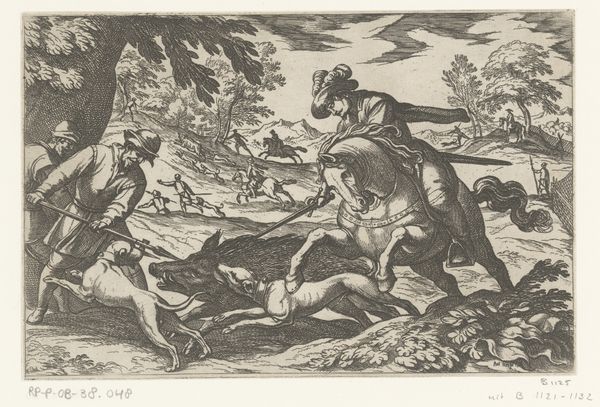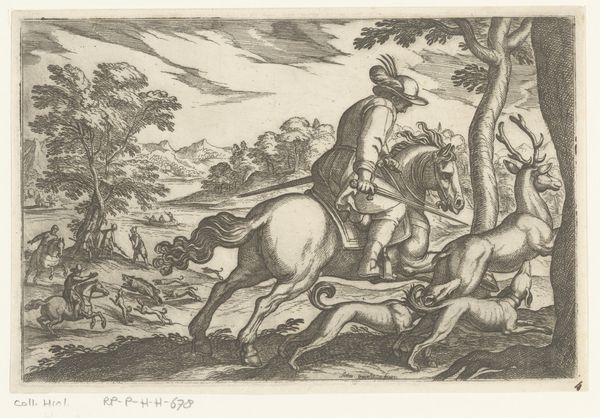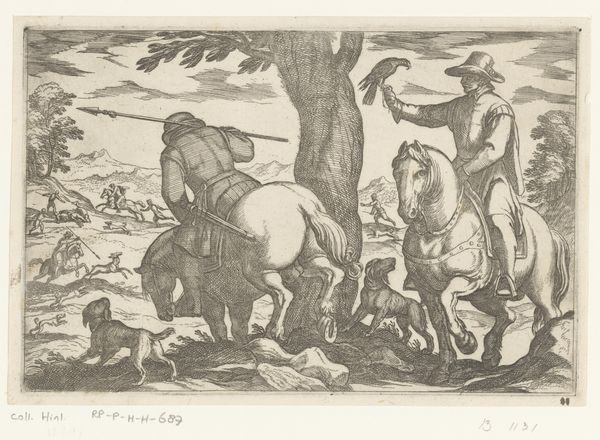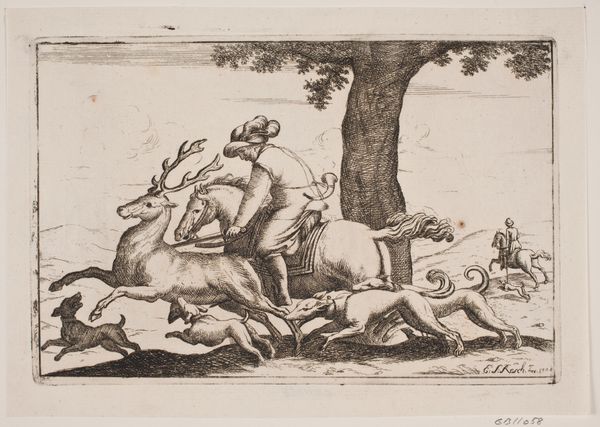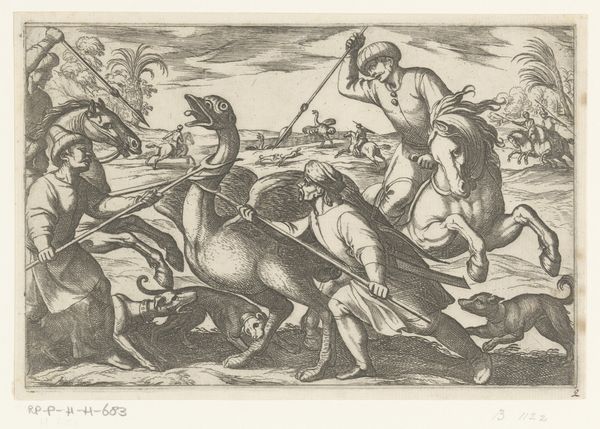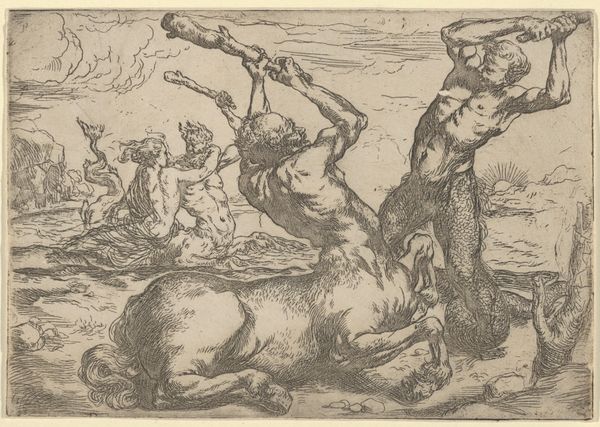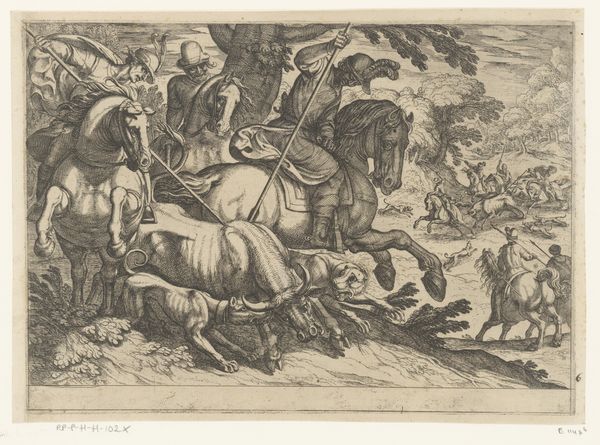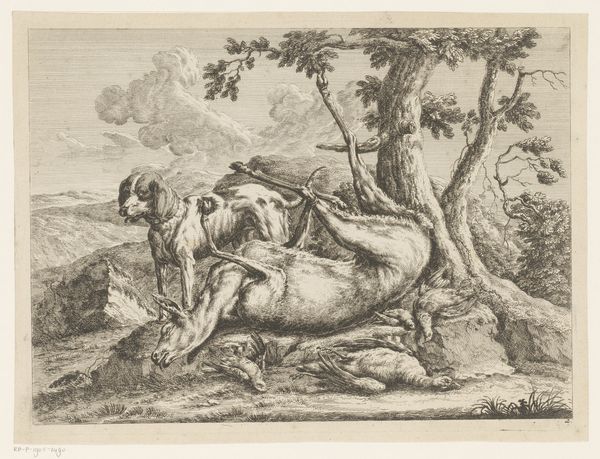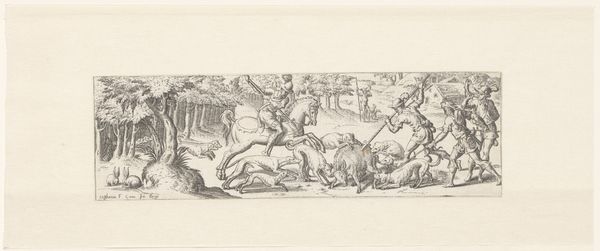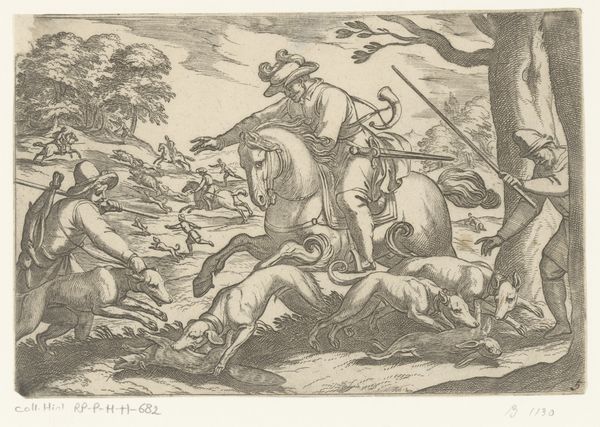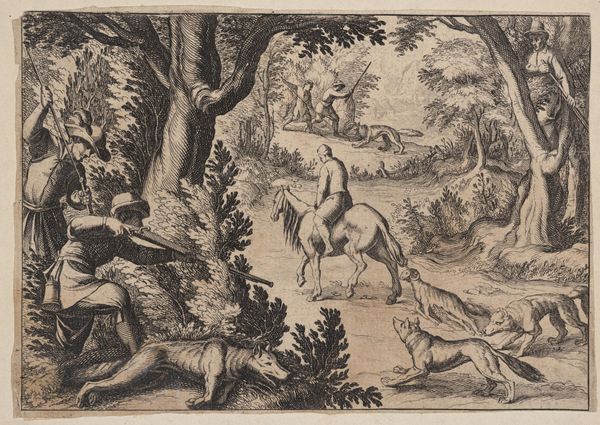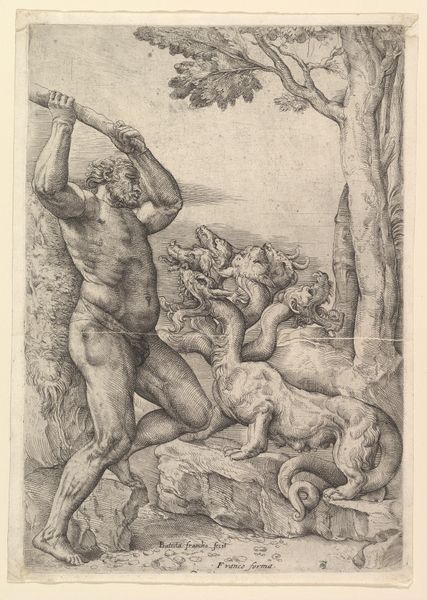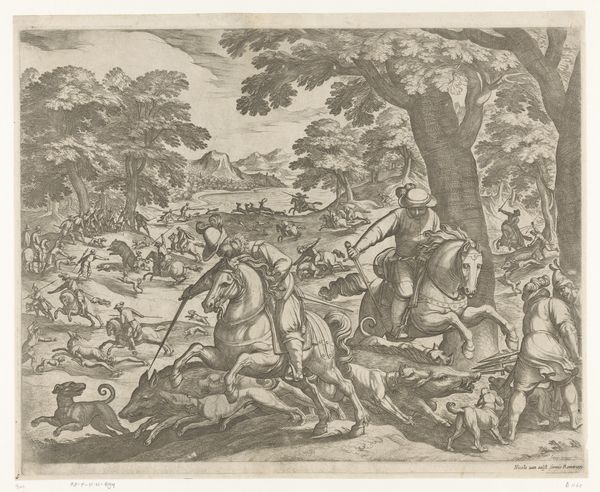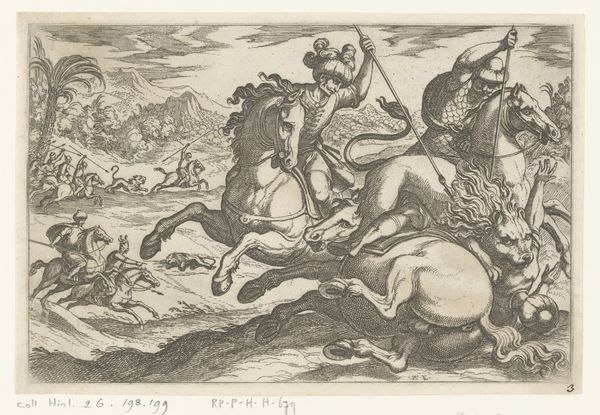
drawing, print, ink, engraving
#
drawing
#
narrative-art
# print
#
pen illustration
#
pen sketch
#
landscape
#
mannerism
#
figuration
#
ink
#
ink drawing experimentation
#
genre-painting
#
history-painting
#
italian-renaissance
#
engraving
Dimensions: height 133 mm, width 200 mm
Copyright: Rijks Museum: Open Domain
Antonio Tempesta made this print, "Jacht op Herten", using etching, sometime between 1570 and 1630. Etching is a printmaking process with a real material presence. The artist covers a metal plate with a waxy, acid-resistant ground. Then, using a sharp needle, the artist scratches an image into the ground, exposing the metal beneath. The plate is then immersed in acid, which bites into the exposed lines, creating grooves. The deeper the bite, the darker the line will appear in the print. This intaglio process allows for a wealth of detail, as you can see, and was favored for its capacity to make multiple impressions of the same image. In this case, the print would have been relatively easy to produce in multiples. The etching technique was prized for its efficiency, fitting with the rise of print culture and an ever-increasing demand for accessible imagery during the early modern period. The labor of the hand is evident, yet mediated by a rising tide of capitalism.
Comments
No comments
Be the first to comment and join the conversation on the ultimate creative platform.
